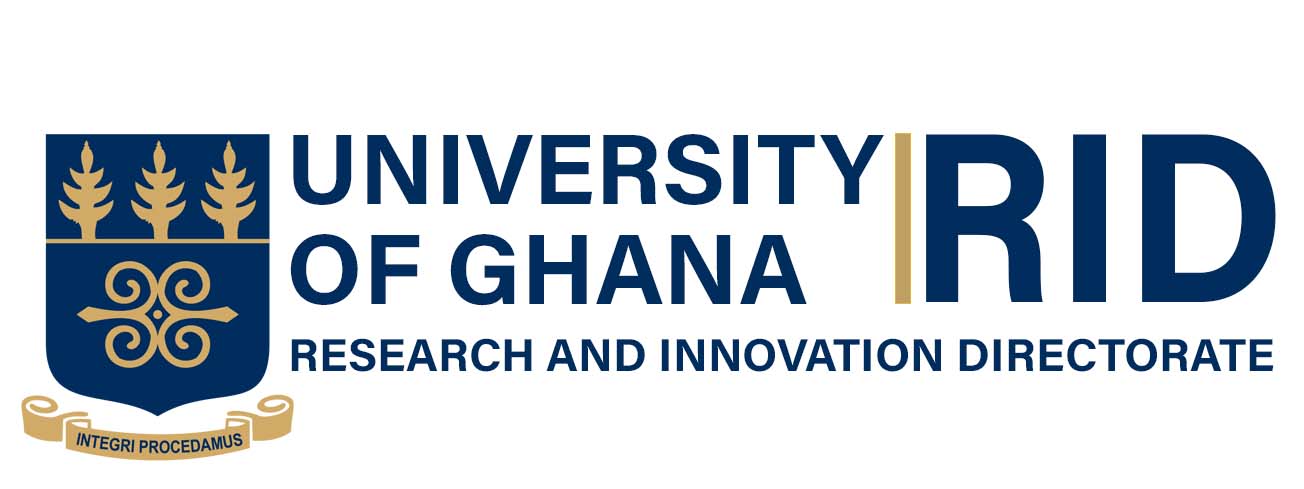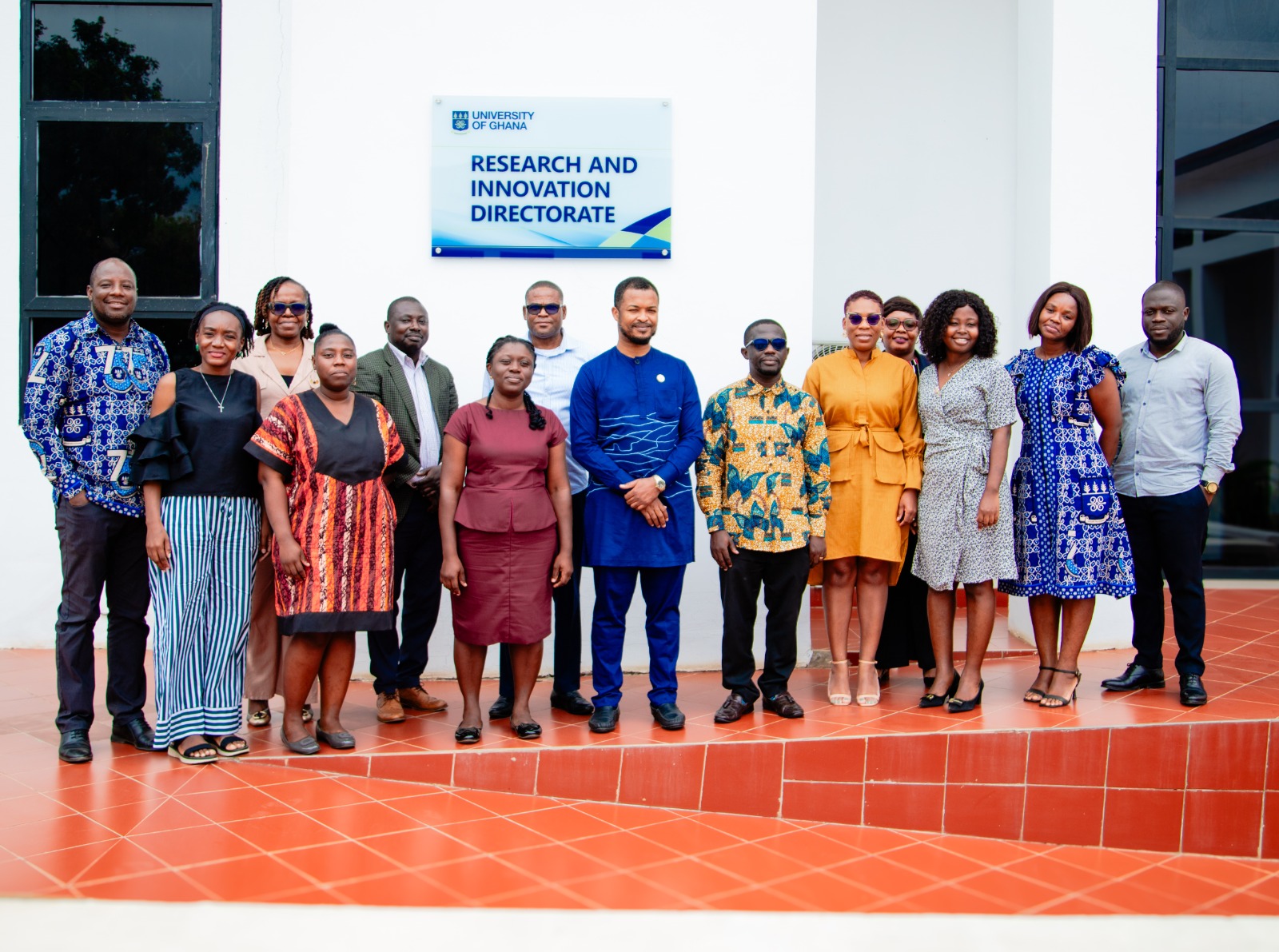On Tuesday, September 2, 2025, the College of Education’s (COE) Grants Management & Research Support Unit within the Research and Innovation Directorate (RID) hosted an engaging peer-to-peer mentoring session in the RID Conference Room. The session, delivered by the West African Centre for Cell Biology of Infectious Pathogens (WACCBIP), centered on building Collaborative Research Partnerships and drew together WACCBIP researchers and fellows, RID members, and faculty from the College of Education for a rich exchange of insights and experience.
The programme began with participants arriving at 10:00 am, followed by a welcome address from Ms. Deborah Akyeampon, Research Development Officer and member of the COE Grants Management and Research Support Unit. The opening remarks were delivered by Professor Nancy Quarshie, Deputy Director of the Research and Innovation Directorate, who reaffirmed the value of the WACCBIP team’s collective experience and set the stage for a morning of learning and collaboration.
Facilitators and Presentations
The session was led by Dr. Peter Kojo Quashie, Deputy Director of Research at WACCBIP, who has extensive experience in securing funding from top agencies such as the Bill and Melinda Gates Foundation and the Wellcome Trust. He was joined by two co-facilitators: Dr. Lucas Amenga-Etego, a Senior Research Fellow at WACCBIP, who shared insights on the importance of networking in the research community and Ms. Sika Menka, the Grants Manager at WACCBIP, who provided a detailed breakdown of the grant application process, highlighting both written and unwritten rules that can influence success.
Key Highlights
Dr. Quashie emphasized that while WACCBIP may not have been doing anything extraordinary, the "little nuances" in their approach have led to significant success in securing funding. He highlighted the importance of understanding the review process and aligning proposals with the interests and expectations of funding bodies. He underscored the necessity of incorporating preliminary data to substantiate feasibility and advocated for simplicity and clarity, noting that overcomplicated narratives often fail to resonate. He encouraged participants to begin with smaller grants to build experience and credibility and stressed the importance of leveraging social media platforms, such as LinkedIn and ResearchGate, to elevate the visibility of one’s work and foster connections.
Dr. Amenga-Etego elaborated on effective networking strategies—detailing how to identify and initiate meaningful research collaborations, and how to sustain productive networks that span disciplinary and institutional boundaries. His insights underscored the value of both formal and informal links in advancing research partnerships.
Ms. Menka offered a seasoned and practical breakdown of the grant writing process. She discussed unwritten rules—the often-unseen expectations influencing funder decision-making—and reiterated the importance of clear, concise, and strategically aligned proposals that align closely with funders’ objectives.
The peer-to-peer mentoring session proved invaluable in equipping participants with practical tools and strategic insights to navigate the complexities of collaborative research and grant writing. Attendees left better prepared to build strong partnerships, craft compelling proposals, and advance their research impact.


